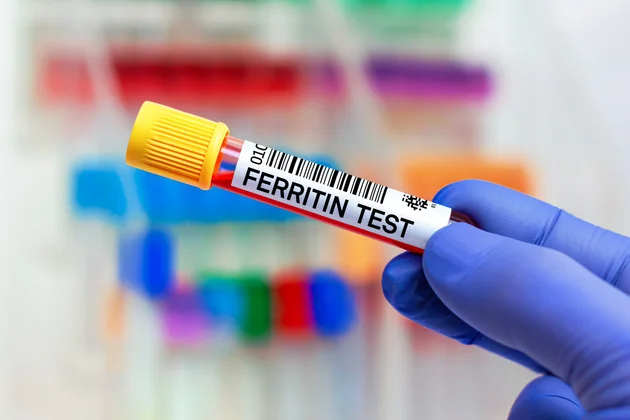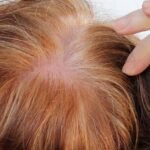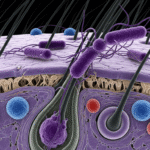Can High Ferritin Cause Hair Loss? Hair loss is a common concern, and many people are aware of the link between low iron levels and hair thinning. However, elevated ferritin levels—a protein that stores iron in your body—may also contribute to hair loss. In this article, we will explore how high ferritin levels affect hair …
Can High Ferritin Cause Hair Loss? Hair loss is a common concern, and many people are aware of the link between low iron levels and hair thinning. However, elevated ferritin levels—a protein that stores iron in your body—may also contribute to hair loss.
In this article, we will explore how high ferritin levels affect hair health, the conditions associated with it, and the steps you can take to manage your iron levels for better hair growth.
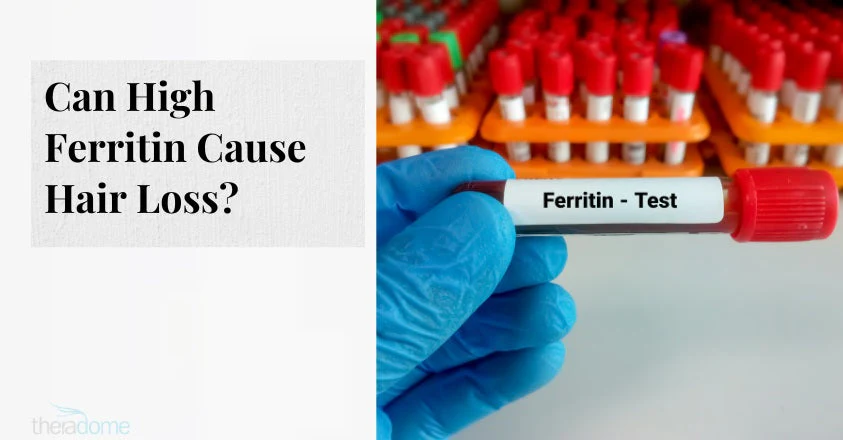
What Is Ferritin and Its Role in the Body?
Ferritin is a protein that stores iron in your body and releases it when needed. It’s essential for maintaining iron balance, which is crucial for producing hemoglobin, the protein responsible for carrying oxygen in the blood. Ferritin is stored primarily in the liver, spleen, and bone marrow.
While ferritin plays a vital role in iron regulation, when ferritin levels are too high, they can lead to health problems. Elevated ferritin may cause oxidative stress and inflammation, both of which can disrupt hair follicle function and contribute to hair thinning or shedding.
The Link Between High Ferritin Levels and Hair Loss
Although low ferritin levels are commonly linked to hair loss, elevated ferritin levels can also negatively impact hair health. Here’s how:
- Iron Overload and Oxidative Stress: When there is too much iron stored in the body, it can lead to oxidative stress. This stress damages hair follicles, causing hair to shed more rapidly and leading to thinning.
- Disrupted Hair Growth Cycle: High ferritin levels can push hair follicles into the resting phase of the hair cycle, causing more hair to fall out. This condition, known as telogen effluvium, can result in noticeable thinning.
- Inflammation: Elevated ferritin can indicate an underlying inflammatory condition. Chronic inflammation can disrupt the normal functioning of hair follicles, further contributing to hair loss.
Conditions Associated with Elevated Ferritin

Several conditions can cause ferritin levels to rise, and these can, in turn, affect your hair health:
- Hemochromatosis: A genetic disorder where the body absorbs too much iron from food, leading to excess ferritin in the bloodstream.
- Chronic Inflammation: Conditions like rheumatoid arthritis or infections can cause elevated ferritin as a response to inflammation.
- Liver Disorders: Chronic liver diseases, such as cirrhosis, can result in high ferritin levels.
- Dietary Factors: Consuming excessive iron supplements or foods rich in iron can increase ferritin levels, although this is less common.
Can High Ferritin Cause Hair Loss: Symptoms
The symptoms of high ferritin may not always be obvious. However, some common signs include:
- Fatigue: A feeling of constant tiredness or low energy.
- Joint Pain: Unexplained aches or stiffness in the joints.
- Skin Changes: Darkening of the skin, particularly on the knuckles, can be a sign of hemochromatosis.
- Hair Thinning: Elevated ferritin can cause hair to thin or shed more than usual, particularly on the scalp.
If you’re experiencing significant hair loss, it may be helpful to check your ferritin levels with a blood test to see if they’re elevated.
Managing Ferritin Levels for Hair Health
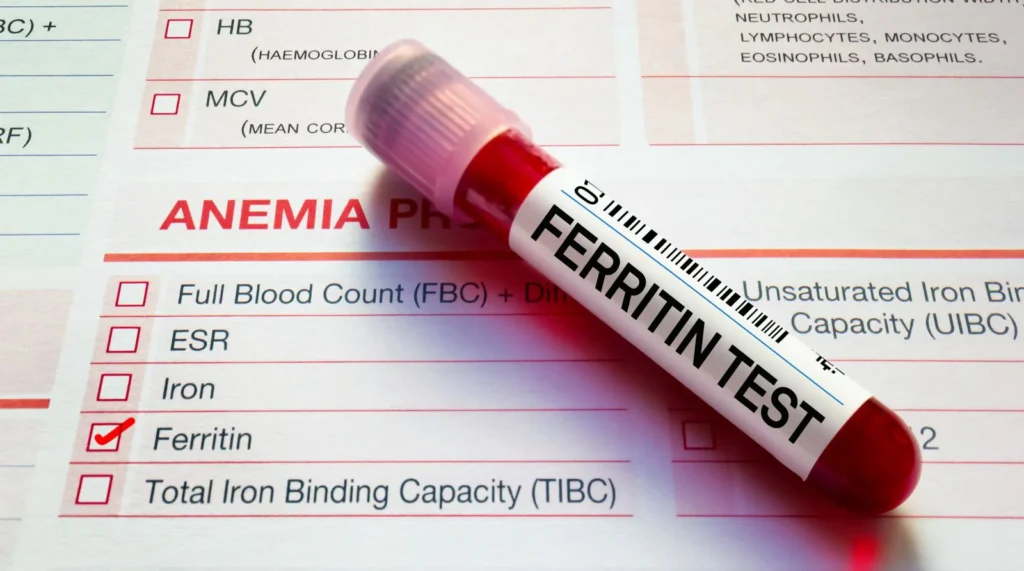
If high ferritin levels are contributing to hair loss, managing these levels is crucial for restoring hair growth. Here are some steps to help:
- Consult a Healthcare Professional: If you suspect high ferritin levels, visit a healthcare provider who can run tests to check your ferritin and iron levels.
- Iron Chelation Therapy: For those with iron overload (such as in hemochromatosis), iron chelation therapy can help reduce excess iron in the body, which may restore normal ferritin levels.
- Dietary Adjustments: Reducing iron-rich foods (like red meat) and avoiding high-dose vitamin C supplements (which enhance iron absorption) can help regulate ferritin levels.
- Monitor Your Ferritin Regularly: Regular blood tests are essential for tracking ferritin levels and making adjustments to your diet or treatment plan if needed.
- Hair Restoration Treatments: If hair loss persists, medical treatments like minoxidil or a hair transplant may help restore hair growth.
When to Consult a Healthcare Professional
If you’re experiencing hair thinning and suspect it might be related to high ferritin levels, it’s important to seek medical advice. A healthcare professional can:
- Perform blood tests to assess ferritin and iron levels.
- Help diagnose underlying conditions causing elevated ferritin.
- Recommend treatments or lifestyle changes to manage ferritin and promote hair health.
FAQs
1. What causes high ferritin levels?
High ferritin levels can be caused by iron overload conditions like hemochromatosis, chronic inflammation, liver disorders, or excessive iron intake from supplements.
2. Can high ferritin levels cause hair loss?
Yes, elevated ferritin levels can lead to oxidative stress and inflammation, which may disrupt hair follicles and cause hair thinning or shedding.
3. How can I reduce high ferritin levels?
Reducing ferritin levels can involve iron chelation therapy, dietary changes (reducing iron-rich foods), and regular monitoring of ferritin through blood tests.
4. How do I know if high ferritin is affecting my hair?
If you notice unexplained hair thinning, fatigue, joint pain, or skin discoloration, it may be a sign that high ferritin levels are contributing to your hair loss. A blood test can confirm elevated ferritin.
5. What treatments are available for hair loss caused by high ferritin?
Managing ferritin levels through medical treatments like chelation therapy, dietary adjustments, or medications for hair growth (e.g., minoxidil) can help restore hair health
Conclusion
High ferritin levels can lead to hair loss through oxidative stress, disrupted hair growth cycles, and inflammation. By managing ferritin levels through medical treatments, dietary adjustments, and regular monitoring, you can help restore hair growth and prevent further thinning. If you’re concerned about the impact of high ferritin on your hair health, consulting with a healthcare professional is the best step toward a solution.
If you suspect high ferritin levels may be contributing to your hair loss, book a consultation Dr. Uzma Irfan, an ISHRS-certified surgeon in Islamabad today . A tailored treatment plan can help you manage ferritin levels and restore your hair health.

